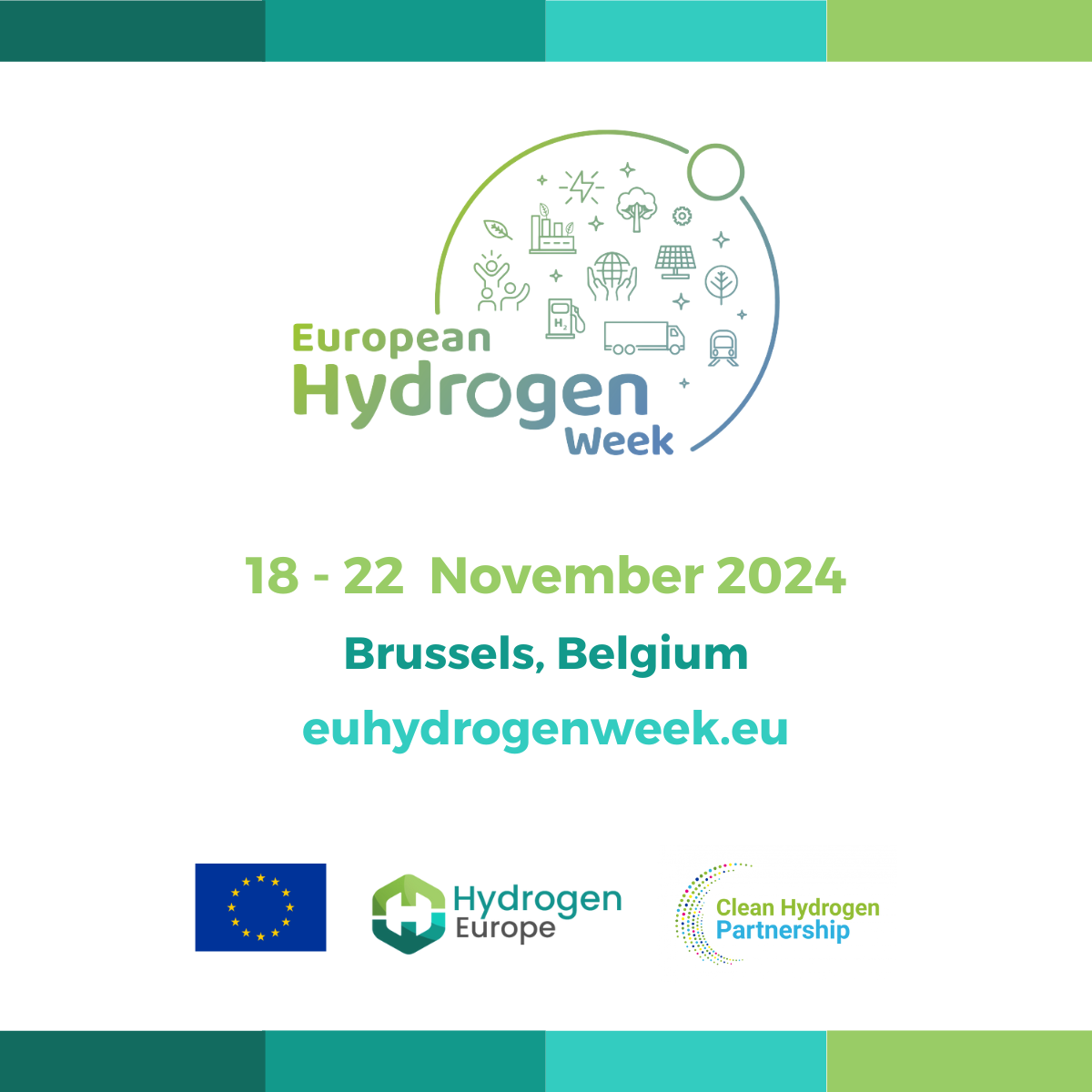Hydrogen Projects
Hydrogen Europe actively participates in European projects that provide added benefits to both its members and the broader hydrogen sector. Our decision to engage in the following projects is based on their alignment with the mission of Hydrogen Europe. This participation may involve initiating a new activity essential for the entire sector or collectively enhancing the communication of flagship projects
The projects we are currently involved in are:
![]()
GREENSKILLS4H2
- Funded by: Erasmus+
- Duration: 48 months
- Full project title: GreenSkills4H2 - The European Hydrogen Skills Alliance
In the 4 years, more than 30+ partners from 14 countries will work together to deliver on the following objectives: designing a long-term partnership between Industry and Education - the European Hydrogen Skills Alliance; the design of an innovative and sustainable Hydrogen Skills Strategy; the development, testing and roll-out of VET training curricula for VET and higher VET and VET training programmes and qualifications in line with latest market needs and consistently linked with EU instruments and tools.
![]()
FC4HD
- Funded by: Austrian Research Promotion Agency (FFG)
- Duration: 1/2021 – 12/2023 (36months)
- Full project title: Heavy-duty fuel cell road demonstrator
The FC4HD project aims to develop and demonstrate a fully-fledged 40t zero-emission fuel cell truck (semitrailer tractor; 5-LH) for the first time worldwide. The FC4HD zero-emission truck and in particular its fuel cell system will fulfil the requirements of commercial vehicles regarding power, efficiency, reliability, and lifetime. The FC4HD fuel cell truck will be demonstrated for 6 months including a real-world operation in a logistic environment and will be validated not only in terms of technical performance at test tracks and on public roads, but also in economic and ecological terms, ultimately preparing for international market introduction.
![]()
ESCALATE
- Funded by: Horizon (CL5-2022-D5-01-08)
- Duration: 42 months (accepted, not started)
- Full project title: Powering EU Net Zero Future by Escalating Zero Emissions HDVs and Logistic Intelligence
In line with the European 2050 goals ESCALATE aims to demonstrate high efficiency zHDV powertrains (up to 10% increase) for long-haul applications that will provide a range of 800 km without refueling/recharging and cover at least 500 km average daily operation (6+ months) in real conditions. ESCALATE will achieve this by following modularity and scalability approach starting from the β-level of hardware and software innovations and aiming to reach the γ-level in the first sprint and eventually the δ-level at the project end through its 2 sprint-V-cycle.
![]()
Fuel Cells & Hydrogen Observatory (FCHO)
The FCHO provides data (statistics, facts and analysis) and up to date information about the entire hydrogen sector. The FCHO focuses on technology and market statistics, socio-economic indicators, policy and regulation, and financial support. Funded by the FCH JU, the observatory is created for the use of policy makers, industry stakeholders and the general public equally.
![]()
H2Haul
H2Haul (Hydrogen Fuel Cell Trucks for Heavy Duty Zero Emissions Logistics – 826236) is a project co-financed by the Fuel Cell and Hydrogen Joint Undertaking (FCH JU). It aims to develop and deploy 16 zero-emission fuel cell trucks at four sites. In addition, new high-capacity hydrogen refuelling stations will be installed to provide reliable, low carbon hydrogen supplies to the trucks. The project began in 2019 and will run for five years.
![]()
JIVE
The JIVE (Joint Initiative for hydrogen Vehicles across Europe) project seeks to deploy 139 new zero emission fuel cell buses and associated refuelling infrastructure across five countries. JIVE will run for six years from January 2017 and is co-funded by a 32 million euro grant from the FCH JU under the European Union Horizon 2020 framework programme for research and innovation. The project consortium comprises 22 partners from seven countries.
![]()
JIVE2
The JIVE 2 (Joint Initiative for hydrogen Vehicles across Europe) project seeks to deploy 152 new zero emission fuel cell buses and associated refuelling infrastructure across 14 European cities throughout France, Germany, Iceland, Norway, Sweden, the Netherlands and the UK. JIVE 2 will run for six years from January 2018 and is co-funded by a 25 million euro grant from the FCH JU (Fuel Cells and Hydrogen Joint Undertaking) under the European Union Horizon 2020 framework programme for research and innovation. The project consortium comprises 23 partners from nine countries.
MultHyFuel
The goal of MultHyFuel is to contribute to the effective deployment of hydrogen as an alternative fuel by developing a common strategy for implementing Hydrogen Refuelling Stations (HRS) in multi-fuel contexts, contributing to the harmonization of existing laws and standards based on practical, theoretical and experimental data as well as on the active and continuous engagement of key stakeholders.


